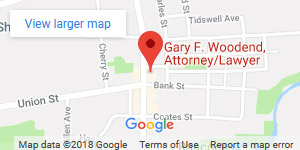Lesson Twenty-Seven — No Experience Necessary
At some point in your life, you are probably going to have to get a job. I have had very few jobs in my life, preferring instead, to be self employed. Self-employment is something that I highly recommend, but I do not think that you can really avoid having a job at some point. Particularly early in your working life.
Getting a job is easy. Getting the right job is not so easy. In other words, if you want to operate a French-fry machine at the local fast food chain, you should have no trouble at all finding a job. On the other hand, if you want to be the vice president of an international marketing company, you may have a little more trouble. Especially at your age.
If you have ever tried to find a job, you know that all of the good jobs, in other words, the ones that you or anybody else would want, require prior experience. But, how can you get the experience if they won’t hire you in the first place. This is a problem that has plagued job seekers for generations and is not likely to improve during your lifetime. So, what do you do about it? The answer is so simple; you are going to wonder why you did not think of it yourself.
To get that job, there are a few easy hurdles you have to overcome. Most advertisements for help wanted will provide a phone number to call, or simply ask you to write to a post office box. This is a problem. Rule Number One in getting a good job is you have to meet the decision maker face to face. You will never get a good job if you don’t find out who is going to make the decision and then meet face to face with that person. Sending a resume to a post office box will not get you the job.
Everyone will be sending r?sum?s, and you can bet yours will just get tossed in the pile with all the others. If the ad does not say who the employer is and where they are located, chances are you don’t want that job anyway. Move onto something else. Keep in mind; your objective is to meet face to face with the person that is going to do the hiring.
If there is a phone number for the prospective employer, call the number, tell the person you are inquiring about the job and ask to speak to the person that will be making the hiring decision. If the person answering the phone wants you to send in a r?sum?, simply say that you would like to know a little bit more about the job before you waste their time sending in a r?sum?. Be persistent.
That’s Rule Number Two. Be persistent. If they won’t tell you about the job, or let you talk to someone that can tell you more about the job there must be a reason. Most likely, the reason is that no one would ever come in for an interview if they knew what the job was really about. More than likely, the job is selling vacuum cleaners or aluminum siding or something equally unfulfilling. You can have all kinds of these jobs if you want, but my feeling is that life is short and we spend too much time of our lives at work to do something unpleasant. In other words, if you are going to go to all the trouble of finding a job and having to show up for work each and every day, you might as well get a job that you might actually like.
Eventually, you will find an employer that is fair and honest and straight forward enough to tell prospective employees about the job before everybody wastes all their time sending letters and r?sum?s, etc.
“Hello, my name is Jerry Dreamboat and I am calling about the rocket scientist job I saw advertised in the Daily Rag sheet. I would like to hear a little more about the job. Would it be possible to speak to the person that will be making the hiring decision? “Please and thank you, of course. “Can you tell me a little bit about your company? Where are you located? What do you do? What kind of job do you have open? What kind of person are you looking to hire? Who is going to make the decision? Can I get an appointment with that person? Can I talk to him or her now?”
The one question you do not want to ask is, “How much does it pay?”That is, of course, unless you don’t really want the job. There are several reasons why you do not want to ask, at this point, how much the job pays. The first is that it will seem as though you are not really interested in the job, but are only interested in the money. In addition, if they wanted to let you know how much the job paid, they would have told you when you asked to hear a little more about the job. The most important reason, however, is that the answer you get is probably not going to help you make a decision as to whether or not you should interview for the job. For example, the most common answer to a question about how much the job pays is, “It depends on your experience. “Even if you were told how much the job pays, they would be quick to point out that you will get raises very quickly and money won’t be an issue.
The fact is you do not need to worry about how much the job pays yet. Why? Because the job has not been offered to you yet. The pay will only be important when you have to decide whether or not to accept the job. Take it one step at a time. Get the interview first. We’ll worry about the money later.
Once you get the interview, make sure you are on time. Five or six minutes early is “on time. “You may even want to make a dry run a few days before so you know how long it takes you to get to your destination. This should be done at approximately the same time of day as your appointment so you can properly adjust for traffic conditions. Being late for the interview is usually fatal.
Dress appropriately for the job you are seeking. If you are applying for a job sweeping floors, there is no need to rent a tuxedo. On the other hand, if you are looking for a job in an office, you should wear your most impressive and conservative business attire. Jacket and tie for the boys, preferably a suit. Skirt, blouse and blazer for the girls. Suits are good too, but not as important as for guys. Make sure your clothes are clean and neatly pressed, and don’t smell too badly. Brush your teeth. Comb your hair. Shave (girls, too). Shine your shoes! Please.

Don’t smoke or chew gum. If you are a smoker, don’t smoke for at least two hours or more before the interview. If you do, you will reek of smoke. Smoking is a personal choice. If your interviewer is a smoker, he or she won’t care one way or the other. However, if your interviewer is a non-smoker, the fact that you smell of smoke will work against you. Why take a chance? Most employers don’t like smokers because they take more frequent breaks from work, and statistics show that absenteeism is higher among smokers due to health problems. If you cannot go for two hours without a cigarette, you are going to have trouble holding a typical job anyway.
Once you are in the interview, shake hands confidently and firmly, but not so firmly that you damage the interviewer. Look at the interviewer’s face during the interview, not necessarily in the eyes. Don’t stare. If you do not take your eyes off of your interviewers eyes, he or she will probably think you are some kind of physco killer. If you don’t make eye contact at all, he or she will think you are lying or trying to hide something. Don’t mumble. State your name clearly. Smile. When the interviewer tells you his or her name, restate the person’s name by saying, “Nice to meet you Mr. Dummass. ” This shows that you are interested in the interviewer as a person, and will also help you remember the interviewer’s name. If you did not catch the interviewer’s name, say so. “I am sorry, I didn’t catch your name. What was that again?” This shows interest, maturity and most of all, respect.
During the interview, you want to ask the same questions you did before. If you are speaking to the same person you had on the phone, don’t ask the same questions, rather, feed back the information in the form of a question in an effort to get more information. “When we spoke on the phone last week, I know you told me that you were in the mail order business. Does that mean you order things only for men?” Well, maybe you can think of a better question, but the idea is to show that you are interested in the company. Since most interviews will be limited to a very short period of time, the more time you can get the interviewer talking about themselves, the job and their company, the less time they have to ask you embarrassing questions.
In addition to the typical questions about the company, what it does, how long they have been in business, and what the requirements of the job are, you will want to ask, “Why do you have an opening at this time?” The reason this question is important is because there is a big difference between a company that is trying to fill a job because they are growing rapidly and one where the job really stinks and everybody keeps quitting. Obviously, you would be somewhat reluctant to take a job that everybody hates and nobody lasts more than two or three days. On the other hand, joining a company that is growing is probably successful and will be able to pay you more money.
At the end of the interview, you must remember to say, “This sounds like a good opportunity. I know I can do a good job for your company. What do I have to do to get the job?” By doing this, your confidence and enthusiasm is bound to impress your interviewer and you might just get the job on the spot. (Remember, there is no need to ask about money until you are offered the job. ) Also, after asking the question, stay silent. (Remember?) The one that speaks next generally loses.
Most likely, you will not be offered the job at this point but will get a response like, “We were looking for somebody with more experience. “Or, “We have several other people to interview”, and so forth. If the interviewer tells you that there is someone else that he or she needs to talk to before making the decision or there is a committee, you should ask if you can speak to that other person or committee right then and there. I know this sounds like you are being really pushy, but if you want the job; you have to let them know you want the job. This is what is going to set you apart from the others. This is no time to play hard to get.
If the interviewer tells you that they need more time or they have more people to interview or they are looking for someone with more experience, you are not done yet. In fact, you are just getting warmed up. Find out if the job is open right now as opposed to a job that might open sometime in the future. If the job is open now, say, “I have a proposition for you, Mr. Dummass. I want this job. I know I can do a good job for you, and I can start tomorrow. I don’t have much experience but I am willing and able to learn. How about if I work for you for two weeks without pay?” In the meantime, you can continue to interview and if you find someone better suited for the job, just let me know and we will part company friends. No hard feelings. It won’t cost you a thing and I’ll get some experience. What do you think?”
This is an offer that will be very difficult for them to refuse. If, for some reason they refuse the offer and you still want to work for them you should call the interviewer back a few days later and reintroduce yourself. “Remember me?” Remind the interviewer that you spoke a few days ago about the job. Tell the interviewer that you are still interested in the job and would like to work for the company. If necessary, you are willing to work for free for two or three weeks to prove that you can do the job. You will blow them away!
If you are presently out of work, what do you have to lose? Not much. You may not get every job you interview for, but I’ll bet you get one out of three. You will definitely do better than every other slob that just sent in his or her r?sum?.
A similar approach, a bit less aggressive, but still having great success, is to tell the interviewer that you would like them to try you in the job for thirty days (with pay). They can continue to interview and if they find somebody better, you will go your separate ways. If at the end of thirty days they don’t like you, you can part company. No questions asked. No hard feelings. This greatly reduces the risk for your employer. How can they say no?
The reason these techniques work is that interviewing masses of prospective employees is a pain in the backside for these companies and something they do not look forward to. If they have an opening, they want it filled. If they could snap their fingers and get a good employee, they would. While they are interviewing prospective employees, they cannot get their own jobs done. They really would rather not be bothered with the whole process. Any help you can give them to make the process easier, or that would end it sooner, will be very welcome. Believe me, if you use these techniques precisely as I have outlined, you will get a job without any problem whatsoever. Just make sure that you only use it for jobs that you really want.
Ultimately, you will be told how much the job pays. Before you get that far in the interviewing process, you should have a very good idea of whether or not you want the job and how much you will be willing to accept. Whatever they offer you, you must accept or reject on the spot. Do not play hard to get. To tell them that you want to think about it after you have put them through all this trouble will not be well received and may hurt you down the road. If it is not enough money, tell them right away. You might be surprised to find that they will ask you how much you are looking for. If they do, tell them. If it is higher than they want to pay, they will tell you. No hard feelings. That is the beauty of a free market economy.
My personal preference is not to worry too much about the money, at least not yet. If the offer is too low, tell them that it is a little bit lower than you had hoped for and ask about future opportunities for pay increases. The bottom line is that you need a job. They have a job. In spite of what most people think, it is better to have a low paying job than to have no job at all. If you take the job at less money than what you wanted, you can continue to look for another job. It is always easier to get a job if you are already employed rather than unemployed. If you are unemployed, the interviewer is bound to wonder what is wrong with you.
If you present yourself in clean clothes, are pleasant, show confidence in yourself and enthusiasm about the job; you will be way ahead of the rest of the pack. If you present the prospective employer with the “no risk” option of working for free for two weeks, or working for thirty days without any obligation, you can’t miss! Go for it!





